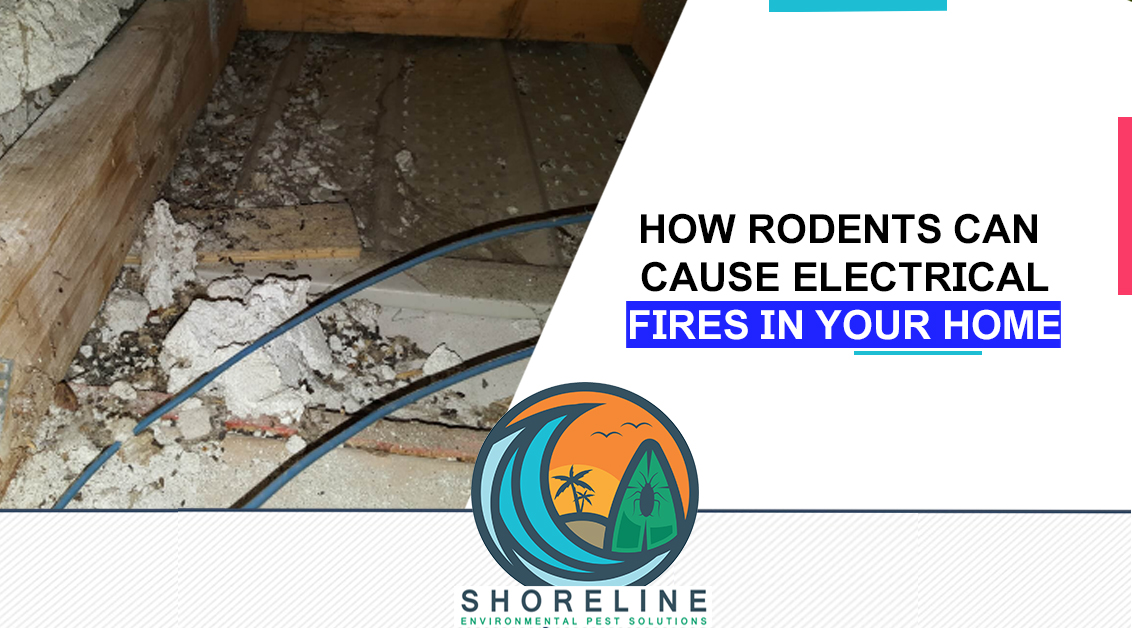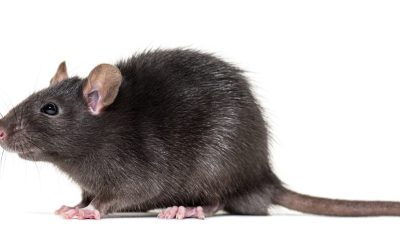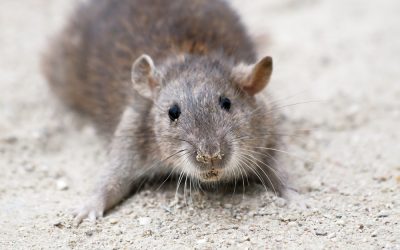Rodents like mice and rats are known for being pests that can cause significant damage to homes, from chewing through walls and insulation to contaminating food supplies. However, many homeowners may need to be made aware of the potential danger these critters pose to the electrical systems in their homes. In this blog, we’ll discuss how rodents can cause electrical fires in your home and what you can do to prevent them.
Chewed Wires:
One of the most common ways rodents causes electrical fires is by chewing through wires. Rodents naturally chew on anything they can get their teeth on, including electrical wiring.
When rodents chew through electrical wiring, they can create a short circuit, which can cause a spark and ignite nearby flammable materials. This can lead to a fire in your home.
Rodents like mice and rats are known for causing damage to homes, including chewing through wires. If you suspect rodents have been chewing wires in your home, taking action is vital to prevent potential electrical fires. Here are some signs that rodents may have been chewing wires in your home:
- Unexplained Power Outages: If you experience power outages in your home that don’t seem to have an apparent cause, it could be a sign that rodents have chewed through wires. When rodents chew through electrical wiring, it can cause a short circuit, leading to power outages.
- Burnt Smell: If you notice a burnt smell in your home, it could be a sign that wires have been damaged or burned. When rodents damage or chew through wires, they can create a spark and cause a fire.
- Damaged Wiring: If you see wiring that has been chewed through or appears to be damaged, it’s a clear sign that rodents have been active in your home. Look for wires that have exposed metal or are missing their protective coverings.
- Strange Sounds: If you hear odd sounds in your walls or ceiling, it could indicate that rodents are active and potentially chewing on wires. Rodents can make scratching or chewing sounds as they move through walls and wiring.
- Frayed or Cut Wires: If you see wires that appear frayed or cut, rodents have likely been chewing on them. This can create a severe fire hazard and should be addressed immediately.
Suppose you suspect that rodents have been chewing wires in your home. In that case, it’s essential to contact a licensed electrician or pest control professional to assess the damage and make any necessary repairs. Taking action early can prevent potentially dangerous electrical fires and keep your home safe.
Nesting Material:
Rodents are resourceful creatures seeking cozy places like attics and walls to create their nests. They use various materials, including paper, fabric, and insulation, to construct their nests. Unfortunately, if rodents use electrical wiring as part of their nesting material, it can create a significant fire hazard. As electrical current passes through the wires, it can generate heat quickly, igniting the nesting material. This can lead to a dangerous and potentially life-threatening electrical fire in your home.
Damage to Electrical Equipment
Rodents can also damage electrical equipment like outlets and light switches, and they can chew through the protective coverings and expose the electrical wiring. This can create a fire hazard, especially if flammable material is nearby.
Tips to prevent rodent-related fires
Here are some tips to help avoid rodent-related fires:
Seal Entry Points: Rodents can enter your home through even the smallest cracks and openings. Inspecting your home’s exterior regularly and sealing any gaps or holes that could provide an entry point for rodents is essential.
Keep Your Home Clean: Rodents are attracted to clutter and debris, so it’s essential to keep your home clean and well-organized. This includes storing food in sealed containers and disposing of garbage promptly.
Trim Trees and Shrubs: Rodents can use trees and shrubs to access your home’s roof and attic. Keep trees and shrubs trimmed and away from your home’s exterior to prevent this.
Install Metal or PVC Pipes: If rodents are known to be active in your area, consider installing metal or PVC pipes around electrical wiring to protect it from damage.
Inspect Electrical Equipment: Regularly inspect electrical equipment like outlets and light switches for signs of damage or chew marks. If you notice any damage, call a licensed electrician to make repairs.
Call a Pest Control Professional: If you suspect that rodents are active in your home, call a pest control professional to assess the situation and take appropriate measures to prevent infestations.
Rodents may seem like harmless pests, but they can cause significant damage to your home’s electrical systems and, in some cases, even create a fire hazard. By preventing rodents from entering your home and protecting your electrical wiring and equipment, you can minimize the risk of an electrical fire caused by these pesky critters. Remember, prevention is vital to safeguard your home from rodent-related electrical fires.





0 Comments